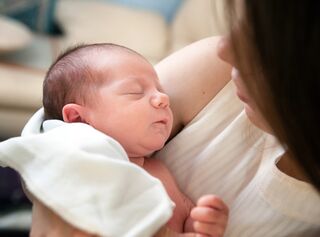
[ad_1]

Supply: Iuliia Bondarenko/Pixabay
Through the early months of the COVID-19 lockdown, I wrote “Extra Infants or Extra Divorces After COVID-19?” On the time, nobody knew for positive.
With companions spending a lot time collectively at house, some folks questioned if we would have a mini child increase. However it didn’t precisely work out that manner. As an alternative, we now have the bottom beginning charge in 50 years.
Child Hesitation
Over the previous couple of years, I’ve been interviewing singleton mother and father and grownup solely kids as a part of The Solely Little one Analysis Challenge. One of many questions I’ve requested is, “How do you suppose the pandemic will have an effect on folks having infants?” Solely kids’s and only-child mother and father’ observations replicate what we find out about beginning charges now and going ahead.
Francine, a confirmed mom of 1, stated that to have a baby throughout the pandemic is “an act of untamed and unfounded optimism. Throughout COVID, two of my pals had been beginning IVF. One went forward; the opposite is within the depths of despair about bringing a baby into this world proper now.”
Ryan, a 44-year-old solely youngster, believes local weather change will scale back household measurement. In his thoughts, “It’s the most important affect. Assets are restricted and kids take up loads of them. As folks change into extra sensitized to the growing environmental disasters, local weather will probably be a deterrent to having youngsters.”
Past worries which were exacerbated by COVID-19 associated to funds, job safety, and, for a lot of, their age or well being issues, one other worry creating hesitation is, as Ryan famous, local weather change, with its mounting disasters. Contemplate the large fires we’ve had within the West and the intense quantity and severity of hurricanes.
Researchers checked out how the emotional turmoil and stress of being pregnant throughout a pure catastrophe impacts a child in utero. They adopted kids whose moms carried them throughout Hurricane Sandy in 2012 and located that these kids “had considerably elevated dangers for despair, nervousness and consideration-deficit and disruptive habits issues. The signs of those issues offered when the kids had been preschool-age.” The authors acknowledge that extra analysis is required on this space.
Extra Infants After COVID?
The birth-rate numbers since popping out of what we hope was the worst of COVID-19 point out that extra folks selected to not have a baby. Though we will’t predict precisely what’s going to occur with COVID-19 and its variants sooner or later, new studies counsel that the U.S. beginning charge will proceed to say no. Presently, it hovers round 1.7 kids per girl, decrease than the substitute stage of two.1. That could possibly be due, partly, to a modest marriage charge resulting in fewer households being shaped. Within the years 2020 and 2021, solely about 30 out of each 1,000 single adults tied the knot.
As in the US, China’s marriage and beginning charges are at an all-time low. Atypically, China now permits courting apps with the hope that they are going to encourage extra marriages and infants.
With fewer marriages, nervousness concerning the financial system, and worries about bringing kids right into a world experiencing dramatic local weather change, we’ve got a solution to the query: “Extra infants after COVID?“ In keeping with Facilities for Illness Management and Prevention information primarily based on beginning certificates, “Through the pandemic, the U.S. beginning charge skilled its largest single-year decease in almost 50 years.” With ladies ready longer to start out their households and households getting smaller, it might appear we aren’t more likely to see a marked uptick in births anytime quickly.
Copyright @2022 by Susan Newman
[ad_2]